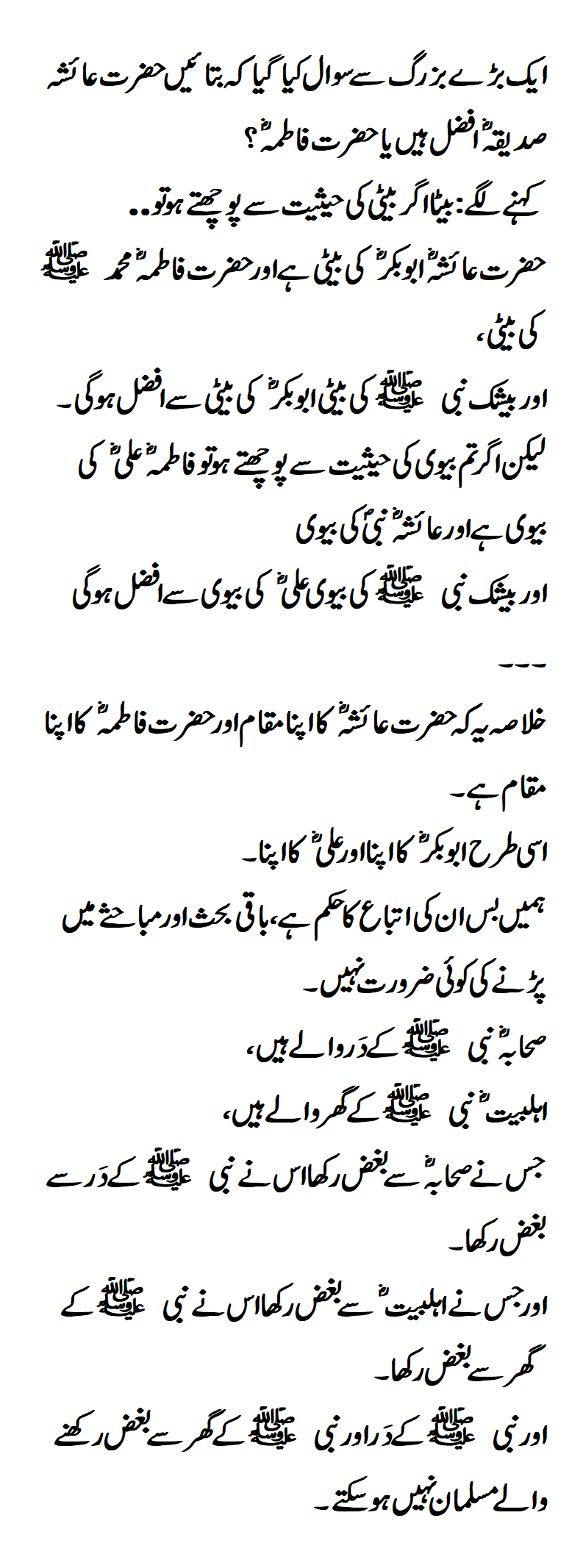Although the widely-cited hadith states that Aisha was nine years old when her marriage to the Prophet (upon him be peace) was consummated, this is contradicted by strong historical evidence. Tabari, the famous historian and hadith expert, states that Aisha was born at least fifteen years before the marriage was consummated, and both early prophetic biographers, Ibn Ishaq and Ibn Hisham, mention that Aisha was amongst the earliest converts to Islam, once again making her much older than the ‘six-nine’ reports indicate, and corroborating Tabari’s opinion. Also, reports of Aisha’s age in works by such authorities as Nawawi, `Asqallani and Ibn Kathir all place her in her late teens at the time the marriage was consummated.
Moreover, historical reports in books such as Saheeh al-Bukari contain descriptions of Aisha in which she appears much older than the ‘six-nine’ narrations would suggest. Pre-modern people were typically not aware of age or birth dates as we are in modern bureaucratised society, and conceptualisation of numbers was also very different in the past. Pre-modern people would often approximate their age when asked, and numbers were often expressed as descriptors rather than intended to be chronologically precise.
Introduction
This article argues that Al-Sayyida Aisha was at least between fifteen and nineteen years of age when her marriage to the Prophet (peace be upon him) was consummated, and not nine as is often assumed. I have named this treatise: “Strike of the Flashing Sword Against Those Who Malign a Marriage Sanctioned by the Lord”.
The widely-cited prophetic narration (hadith), recorded by al-Bukhari and others, in which Aisha stated that she was betrothed when she was six and the marriage was consummated when she was nine[1], has become the basis of personal attacks on the character of the Prophet (peace be upon him). This article argues that the ages mentioned in this hadith are contradicted by historical evidence, including other hadiths and historical reports. The author also suggests that the actual numbers stated in the hadith were never meant to be precise, and Arabs of the time, like many other pre-modern people, did not have a calendar system and chronological accuracy was simply not a feature of their culture.
